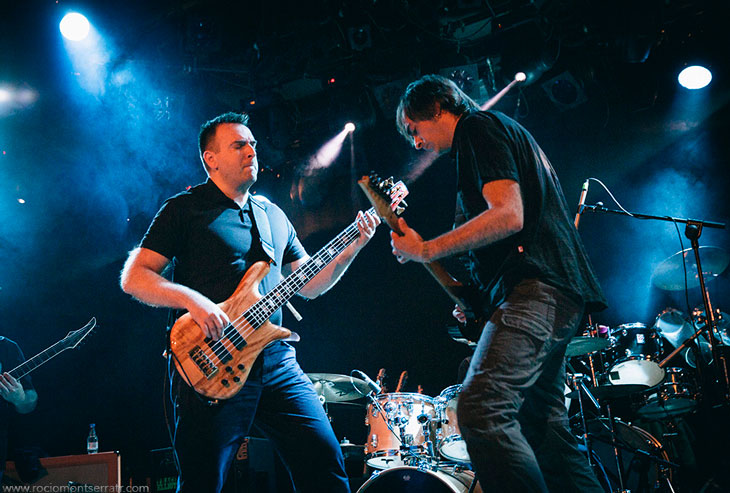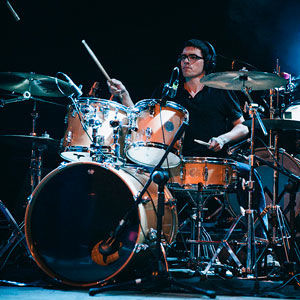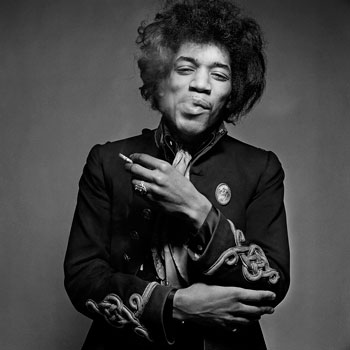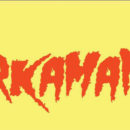Audiolepsia is a Barcelona-based, four-piece prog/post-rock band composed of Angel de las Heras and Brian Jimenez on guitars, Jordi de las Heras on bass, and Kilian Callado on drums. Other than the absence of a vocalist, it's a tried-and-true formula, so tried-and-true, in fact, that some might find it old and tired. But nothing about this band sounds old or tired.
The quality that jumps out from the band most strongly is “craftsmanship.” Every song is finely honed and tightly woven. This is somewhat remarkable, because the band's only been together for about three years. Despite Audiolepsia’s relative youth as a unit, Muses feels like a mature effort from a veteran band.
Muses pays tribute to seven strong female lead characters from seven different films or comic books, ranging from Kill Bill’s Beatrix to Lost in Translation’s Charlotte and Ghost in the Shell’s Motoko. What each has in common is that she inspires Audiolopsia with her “fierceness, sensitivity, intelligence, and beauty.”
The band also employs audio clips of things like street chatter and thunder to connect the songs with sounds that are relevant to one or both of the songs they bridge. It’s this kind of little detail that adds an impressive personal touch to Muses.
I always listen to new bands blind (or "deaf," as it were). I don't research anything about them or read other people's opinions. I want a clean, honest reaction to the music I hear. Only afterwards do I start digging. In the case of Audiolepsia, this process left me amazed at how the band was able to create such a cinematic sound that captures the contrasting ferocity and tenderness of its subject so well, without any lyrics to help. The album isn't just “about” Audiolepsia's muses—it embodies them. Only the titles of each track—“Beatrix,” “Motoko,” and so on—confirm the subject.
The album isn't just “about” Audiolepsia's muses—it embodies them.
The music tends towards the more restrained side of the progressive genre. Each song sees the band exploring sonic troughs and peaks and demonstrating an interesting tendency to establish clear patterns, lull you into that pattern, and then blow the doors off the whole thing with an explosive deviation. Muses punches you in the gut every time it catches you falling asleep at the wheel, but the jarring moments are seeded carefully in otherwise chill instrumental journeys.
One exception to the overall pattern comes in the opening track, “Beatrix,” which is the one song on the album that might justifiably be called heavy metal. The song’s crashing drums and snarling guitars call to mind a shirtless Odin in blue jeans shredding a lightning bolt while Satan smashes the drums of Armageddon. It’s my favorite track on the album, but its placement is the one aspect of Muses that I question. No other song approaches the malevolent ferocity of this song, and it seems odd to set a clear tone with the opening track, but then never to return to that tone again.
Most of the songs are guitar-driven, but like Rush’s Neal Peart, Kilian Callado isn’t afraid to take over now and then with rhythmic ebullience. The instrumentation is complex, but it never approaches the kind of overindulgence that some members of the progressive genre are guilty of. If anything, the music exhibits more of a classical sensibility, with every part equally serving the whole.
It seems almost unbelievable to me that Audiolepsia has only been playing together for three years. Muses feels like the mature work of a group that's been together for a long time.
That is probably the most exciting thing of all, because it indicates that the band hasn't peaked yet—not even close—and has many more exciting things in store for us.
8,975 out of 10,000 Rawckus Kung Fu Throwing Stars













